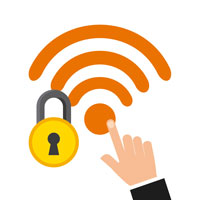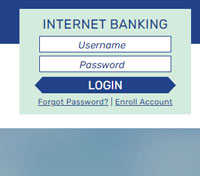Try Mobile Banking
Simple. Fast. Powerful.
November 2025
Falcon Fraud Alerts is a free service offered to all Space Age debit and credit cardholders. Falcon Fraud Protection alerts you of potential fraud on your VISA card in real-time by either an automated phone call or text message. Click here to learn more.
July 2025
Space Age will never call you asking for your account information or social security number. We already have that information on file and will only ask you to provide personal information for verification purposes after you have initiated the preliminary call.
It's time to talk about Fraud and how not to fall for the "Con". We say Con because, essentially, that is what they are, Digital Con-artists, and their goal is to trick you out of your personal information. Being aware is your best defense, so here are some tips to strengthen your Fraud Shield.
Space Age Uses Falcon Fraud Alerts to Fight Card Fraud. Falcon Fraud Alerts is a free service offered to all Space Age debit and credit cardholders. Falcon Fraud Protection alerts you of potential fraud on your VISA card in real-time by either an automated phone call or text message. Click here to learn more.
SPACE AGE WILL NEVER ASK YOU FOR YOUR ONE-TIME PASSCODE OR SECURITY CODE.
We do not need it to access your account.

This is when Fraudsters try to impersonate Space Age through text messages and calls. DO NOT give any personal information, one-time passcodes or security codes to suspicious or unprompted calls from us. Scammers employ a technique known as "spoofing" to manipulate your caller ID display, making it appear as though their call is coming from a trusted source, like Space Age. They also use a tactic called “neighbor spoofing” to mimic local numbers or even spoof numbers from recognized companies or government agencies to gain your trust. Once you answer, they employ persuasive scripts to extract your confidential information or security codes, which they can then use to infiltrate your accounts and steal your money. So what can you do if you get a call from an unknown caller?

This is your first defense. Changing your passwords often to something that is not easily known to you. Using your dog's name, kid's birthday, anniversary date, or favorite movie or song are all really weak passwords. It should not be a word. Use special characters like !@#$, numbers and letters to make up something that is not easily guessed or found on Facebook or in the public record. Consider using a password manager app to generate and manage stronger passwords.

Accessing websites that store your personal information on public WiFi, like at Starbucks, or the Airport, is opening yourself up to others also using that unsecure WiFi to see your activity and capture your personal information. Public computers, such as at the library or at a print shop or hotel, is also putting trust in a system that many others have access too. Keylogging software or devices can be installed on these computers that can track your key strokes and web activity giving them access to your person accounts, emails, and passwords. Free WiFi means free access to everyone, even the scammers and fraudsters.

Keyloggers capture your keystrokes and activity on a computer. Some keyloggers are software-based, where they are installed on your computer like any other software application. This could come from clicking on a strange link in an email or a download from a unknown website. They can also be hardware devices, often requiring physical access to a computer or device to install. Public computers are vulnerable to these sort of devices. The modern keyloggers can capture more than just keystrokes; they can also record screenshots, clipboard contents, and even microphone or webcam inputs.

Just being aware of activity in your accounts is a great defense against the unauthorized purchase. Check your statements and transaction history regularly. If you see something suspicious, report it immediately. If you haven't signed up for Space Age's Internet Banking, we recommend that you do. In Internet Banking you can access your accounts 24/7 and set it up so you can receive alerts notifying you of account transactions. If you need help with the setup, give us a call and we would be happy to help. For the most user friendly interface on a smartphone, please consider downloading the Space Age Mobile App off of the App Store or Google Play.

Use a shredder to destroy credit cards and bank statements as well as any information with your critical information. Dumpster Diving is alive and well and Fraudsters are not too proud to sort through your banana peels and coffee grounds for your personal information.

It's a tried and true scam that has been around for years. Phishing can be as simple as clicking on a link in an unfamiliar or fake email designed to scare you into action. If you receive an email saying that something is wrong with your accounts and to "Click Here" to go to the website to enter or correct your information, take a breath and resist the urge to click. Take a moment to look at the email.
When in doubt, delete the email and go to the company you know and trust directly.

Artificial Intelligence is no longer just a SciFi concept. These "thinking" programs are making the dumb scammer seem smart. We used to be able to spot a fake email by looking for bad spelling and poor sentence structure. With A.I. like ChatGPT, these emails take on a new level of legitimacy. The A.I. is composing the email so the scammer doesn't have to with much fewer mistakes. A.I. is also being used to clone peoples voices. If you have video recordings, such as TikTok videos, or influencer videos on YouTube, A.I. can capture your speech patterns and mimic its sound to be used by fraudsters to create deep fake audio of "you" to try and fool companies and even loved ones.

When entering your personal information online, be sure the website is secure. The easiest way to know is in the web address, it should start with https://. The "s" at the end of http stands for, "secure". When you are on a website that only has http://, just be aware that this is not a secure site. No "s", No Deal. DO NOT enter any personal or account information on a website that has no "s".

Direct access to your system is not impossible. Through all the methods mentioned above or through other third party hacks that target client information, Hackers can gain the information they need to access your home computer. Firewalls and virus protection software are designed to combat this, but always be aware of security vulnerabilities. The best defense is to keep your operating systems and virus protection software up-to-date and run virus protection scans regularly.

Third party peer to peer payment services, like Zelle, Venmo, PayPal or Square, are convenient BUT, they are also ripe for the picking. Fraudsters love to target these kinds of services because they are outside the protections of the credit union and transactions can be instant. Once a payment is sent, the chance of retrieving that money is slim to none. Just like any online banking service, as long as you are aware and use precaution, your day-to-day transactions are safe and secure.
LEARN ABOUT THE PEER-TO-PEER PAYMENT SCAM AND HOW TO AVOID IT!
Space Age will never call you asking for your account information or social security number. We already have that information on file and will only ask you to provide personal information for verification purposes after you have initiated the preliminary call. If you receive a call from someone claiming to be from Space Age asking you for account information, Hang up and Report it to the credit union ASAP.
If you believe you are a victim of financial fraud, please contact your local law enforcement and file a police report first – then contact the credit union at 303-369-7666 or 800-666-6928. This will allow Space Age to streamline our efforts and get you back to a state of financial security much faster.

In light of the many recent breaches, identity theft has been at the forefront of many members’ minds, and understandably so. With millions of consumers impacted, many individuals are contemplating their next move – how to effectively safeguard not only their identity, but also their financial future.
These are a few things you can do to help protect yourself against the risk of identity theft, and some steps to take should you find yourself a victim of it.
It can take a lot of time, money and energy to clean up the mess a thief has made of your good name and credit record. It takes an average resolution time of 40 hours per incident to repair the damage a thief has left behind, not to mention if the act was criminal!
